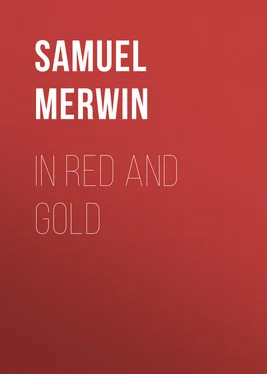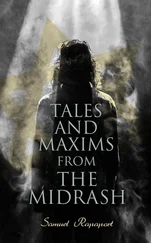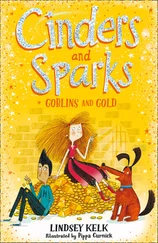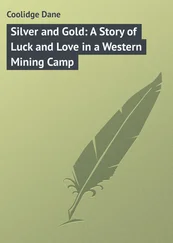Samuel Merwin - In Red and Gold
Здесь есть возможность читать онлайн «Samuel Merwin - In Red and Gold» — ознакомительный отрывок электронной книги совершенно бесплатно, а после прочтения отрывка купить полную версию. В некоторых случаях можно слушать аудио, скачать через торрент в формате fb2 и присутствует краткое содержание. Жанр: foreign_prose, на английском языке. Описание произведения, (предисловие) а так же отзывы посетителей доступны на портале библиотеки ЛибКат.
- Название:In Red and Gold
- Автор:
- Жанр:
- Год:неизвестен
- ISBN:нет данных
- Рейтинг книги:3 / 5. Голосов: 1
-
Избранное:Добавить в избранное
- Отзывы:
-
Ваша оценка:
- 60
- 1
- 2
- 3
- 4
- 5
In Red and Gold: краткое содержание, описание и аннотация
Предлагаем к чтению аннотацию, описание, краткое содержание или предисловие (зависит от того, что написал сам автор книги «In Red and Gold»). Если вы не нашли необходимую информацию о книге — напишите в комментариях, мы постараемся отыскать её.
In Red and Gold — читать онлайн ознакомительный отрывок
Ниже представлен текст книги, разбитый по страницам. Система сохранения места последней прочитанной страницы, позволяет с удобством читать онлайн бесплатно книгу «In Red and Gold», без необходимости каждый раз заново искать на чём Вы остановились. Поставьте закладку, и сможете в любой момент перейти на страницу, на которой закончили чтение.
Интервал:
Закладка:
“This,” his excellency was saying, “is my daughter, Hui Fei.”
“I am very pleas’ to meet you,” said Hui Fei.
They sat then. The girl became at once, as in America, the center of the talk. Though of the heedlessness not uncommonly found among American girls she had none. She was prettily, sensitively, deferential to her father. Somewhere back of the bright surface brain from which came the quick eager talk and the friendly smile, deep in her nature, lay the sense of reverence for those riper in years and in authority that was the deepest strain in her race. She dwelt on things almost utterly American: the brightness of New York – she said she liked it best in October, when the shops were gay; the approaching Yale-Harvard football game, a motoring tour through the White Mountains, happy summers at the seashore.
Doane watched her, speaking only at intervals, wondering if there might not be, behind her gentle enthusiasm, some deeper understanding of her present situation. He could not surely make out. She had humor, and when he asked if it did not seem strange to step abruptly back into the old life, she spoke laughingly of her many little mistakes in etiquette. Her English he found charming. She was continually slipping back into it from the Mandarin tongue she tried to use, and as continually, with great gaiety, reaching back into Chinese for the equivalent phrase. She had so nearly conquered the usual difficulty with the l’s and r’s as to confuse them only when she spoke hurriedly. At these times, too, she would leave off final consonants. The long e became then, a short i . Doane even smiled, with an inner sense of pleasure, at her pretty emphasis when she once converted people into pipple . She was, unmistakably, a young woman of charm and personality. Despite the quaintness of her speech, she was accustomed to thinking in the new tongue. Her command of it was excellent; better than would commonly be found in America. All of which, of course, intensified the problem.
His excellency sat back, smoked comfortably, and looked on her with frankly indulgent pride.
A servant came with a message; bowing low. The viceroy excused himself, leaving his daughter and Doane together. Doane asked himself, during the pause that followed his departure, what the observant attendants beyond the screen would be thinking. The situation, from any familiar Chinese point of view, was unthinkable. Yet here he sat; and there, her brows drawn together (he saw now) in sober thought, sat delightful Miss Hui Fei.
She said, in a low voice, while looking out at the river: “Mr. Doane, no matter what you may think – I mus’ see you. This evening. You mus’ tell me where. It mus’ not be known to any one. There are spies here.”
Doane glanced up; then, too, looked away. There could be no question now of the girl’s deeper feeling. She was determined. Her tune was honest and forthright, with the unthinking courage of youth. It would be her father, of course…
But his mind had gone blank. He knew not what to think or say.
“Please!” she murmured. “There is no one else You mus’ help us. Tell me – father will be coming back.”
And then Griggsby Doane heard his own voice saying quietly: “The boat deck is the only place. You will find a sort of ladder near the stern. If you can – ”
“I will go up there.”
“It will be only just after midnight that I could arrange to be there.”
His excellency returned then. And Doane took his leave. He had been but a few moments in his own cabin when two actors of his excellency’s suite appeared, each with a lacquered tray, on one of which was a small chest of tea, wrapped in red paper lettered in gold and bearing the seal stamp of the private estate of Kang Yu, on the other an object of more than a foot in height carefully wound about with cotton cloth.
Doane dismissed the lictors with a Mexican dollar each and unwrapped the larger object, which the servant had placed with great care on his berth. It proved to be a pi , a disk of carven jade, in color a perfect specimen of the pure greenish-white tint that is so highly prized by Chinese collectors. The diameter was hardly less than ten inches, and the actual width of the stone from the circular inner opening to the outer rim about four inches. It stood on edge set in a pedestal of blackwood, the carving of which was of unusual delicacy. The pedestal was, naturally, modern, but Doane, with a mounting pulse, studied the designs cut into the stone itself. That cutting had been done not later than the Han Dynasty, certainly within two hundred years of the birth of Christ.
CHAPTER IV – INTRIGUE
THE Yen Hsin would arrive at Kiu Kiang by mid-afternoon.
Half an hour earlier. Doane, on the lower deck, came upon a group of his excellency’s soldiers – brown deep-chested men, picturesque in their loose blue trousers bound in above the ankles and their blue turbans and gray cartridge belts – conversing excitedly in whispers behind the stack of coffins near the stern. At sight of him they broke up and slipped away.
A moment later, passing forward along the corridor beside the engine room, he heard his name: “Mr. Doane! If you please!” This in English.
He turned. Just within the doorway of one of the low-priced cabins stood a pedler he had observed about the lower decks; a thin Chinese with an overbred head that was shaped, beneath the cap, like a skull without flesh upon it; the eyes concealed behind smoked glasses.
“May I have a word with you, Mr. Doane?”
The mate considered; then, stooping, entered the tiny cabin. The pedler closed the door; quietly shot the bolt; then removed his cap and the queue with it, exposing a full head of stubbly black hair, trimmed, as is said, pompadour. The glasses came off next; discovering wide alert eyes. And now, without the cap, the head, despite the hair and the seriously intellectual face, looked, balanced on its thin neck, more than ever like a skull.
“You will not know of me, Mr. Doane. I am Sun Shi-pi of Shanghai. I was attached, as interpreter, to the yamen of the tao-tai. I left his service some months ago to join the republican revolutionary party. I was arrested shortly after that at Nanking and condemned to death, but his excellency, the viceroy – ”
“Kang?”
“Yes. He is on this boat. He released me on condition that I go to Japan. I kept my word – to that extent; I went to Japan – but I could not keep my word in spirit. My life is consecrated to the cause of the Chinese Republic. Nothing else matters. I returned to Shanghai, and was made commander there of the ‘Dare-to-dies.’ You did not know of such an organization? You will, then, before the winter is gone. We shall be heard from. There are other such companies – at Canton, at Wuchang – at Nanking – at every center.”
Doane seated himself on the narrow couch and studied the quietly eager young man.
“You speak English with remarkable ease,” he said.
“Oh, yes. I studied at Chicago University. And at Tokio University I took post-graduate work.”
“And you are frank.”
“I can trust you. You are known to us, Mr. Doane. Wu Ting Fang trusts you – and Sun Yat Sen, our leader, he knows and trusts you.”
“I did know Sun Yat Sen, when he was a medical student.”
“He knows you well. He has mentioned your name to us. That is why I am speaking to you. America is with us. We can trust Americans.”
Doane’s mind was ranging swiftly about the situation. “You are running a risk,” he said.
Sun Shi-pi shrugged his shoulders. “I shall hardly survive the revolution. That is not expected among the ‘Dare-to-dies.’”
“If his excellency’s soldiers find you here they will kill you now.”
Читать дальшеИнтервал:
Закладка:
Похожие книги на «In Red and Gold»
Представляем Вашему вниманию похожие книги на «In Red and Gold» списком для выбора. Мы отобрали схожую по названию и смыслу литературу в надежде предоставить читателям больше вариантов отыскать новые, интересные, ещё непрочитанные произведения.
Обсуждение, отзывы о книге «In Red and Gold» и просто собственные мнения читателей. Оставьте ваши комментарии, напишите, что Вы думаете о произведении, его смысле или главных героях. Укажите что конкретно понравилось, а что нет, и почему Вы так считаете.












